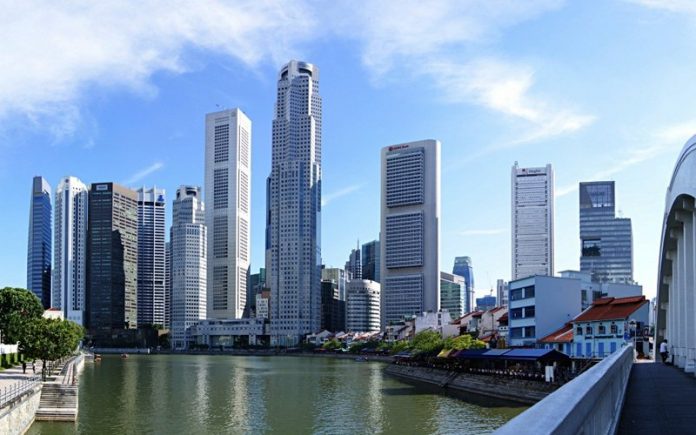
SINGAPORE: The office may never reach its past heights in the post-pandemic world but the outlook for Singapore and Hong Kong offices is promising.
Relatively small homes in those cities, short commutes to work and new tech firm tenants bode well for property trusts that focus on those markets.
Domestically focused real estate investment trusts in these hubs have outperformed their peers in Australia and Japan this year, and continue to rise on the back of a rotation to economically sensitive stocks.
Hong Kong’s Champion REIT, whose tenants include Citigroup Inc, Singapore’s Keppel REIT and Mapletree Commercial Trust has beaten baskets of equally-weighted trusts in Australia and Japan, according to Bloomberg-compiled data.
To be sure, no one expects Singapore and Hong Kong offices to be unscathed from the pandemic. Companies like Citigroup and Mizuho Financial Group Inc in Singapore and Macquarie Group Ltd in Hong Kong are giving up office space as demand wavers, and they confront a future of some remote work.
Singapore’s vacancy rates have already risen to 4.9% in the third quarter from 3.3% a year earlier, while that for Hong Kong’s Grade A office spaces was up at 9% in September from 6.1% over the same period last year, according to data from Colliers International Group Inc.
But these cities have kept the virus under relative control. Homes are also too small to make a permanent work-from-home future viable, while unlike London or New York, these cities don’t have a significant hinterland of suburbs where workers can flee to.
That’s probably why their REITs are just about 13 percentage points from erasing losses this year while Australian and Japanese office REITs are down an average of 24%.
Singapore in pole position
Singapore’s office market is likely “in one of best positions” globally because living spaces are small, supply is tight, and tech companies are increasingly looking to the country for office space, said Shern-Ling Koh, a portfolio manager at Principal Real Estate Investors.
He said after Singapore’s office REITs, he likes that of Hong Kong’s and then Tokyo’s, in that order.
In Singapore, Hong Kong’s imposition of a controversial national security law this year is drawing companies, while tech giants such as China’s Tencent Holdings Ltd as well as Amazon.com Inc. are setting up regional headquarters in the Southeast Asian city.
Billionaire Ray Dalio is the latest to plan a family office in the city-state to run investments and philanthropy.
“These incoming office space users from these newer industries should offset what Singapore may lose in others,” said Yoojeong Oh, a Singapore-based fund manager at Aberdeen Standard Investments Asia Ltd.
For all its political woes and departures, Hong Kong is drawing Chinese firms in, partly due to a boom in initial public offering activity.
TikTok owner ByteDance Ltd and Alibaba Group Holding Ltd have signed leases to add office space in Hong Kong, while CMB International Capital Corp is among finance firms expanding their presence in the world’s priciest property market.
Plans announced this week by the government to cut stamp duties should also bolster deals in the city’s commercial property market.
Hot property
It helps that REITs in these two cities are relatively cheap while offering attractive dividend yields, especially when compared with bond yields.
Analysts estimate Keppel REIT and Mapletree Commercial will yield 5.4% and 4.1% for the 2021 fiscal year, respectively, while Champion REIT will offer 5.3%.
That outstrips the less than 4% yield of Japan’s biggest trusts such as Nippon Building Fund Inc, though they are lower than the 7% at Australian REITS like Centuria Office REIT and Australian Unity Office Fund, where share prices have plunged.
Keppel shares rose 1% on Friday, while Mapletree Commercial and Champion were down 0.5% and 0.9%, respectively.
“Remote working will remain prevalent for some time, but the long-term demise of the office is an illusion and it’s a good time to buy office REITs in Singapore and Hong Kong,” said Joachim Kehr, portfolio and regional manager for Asia Pacific at Centersquare Investment Management LLC.



